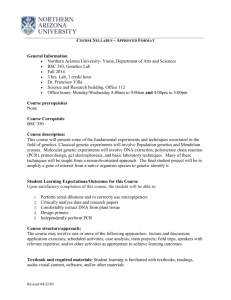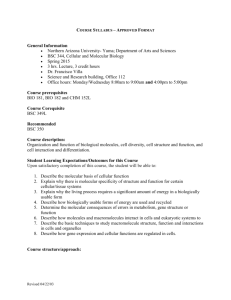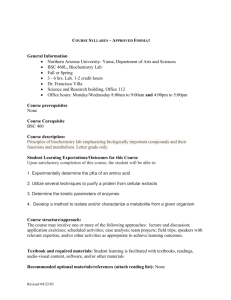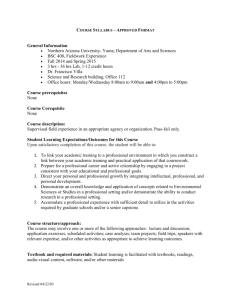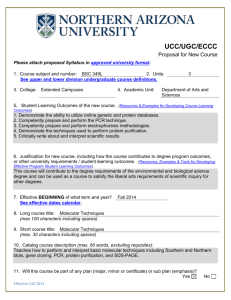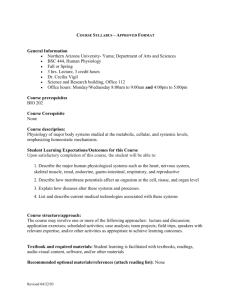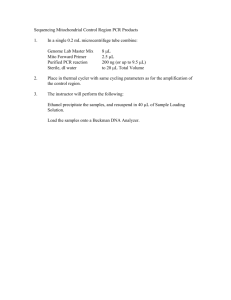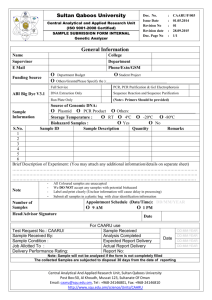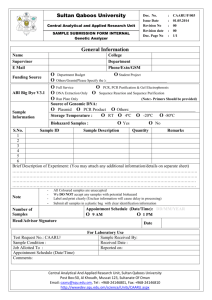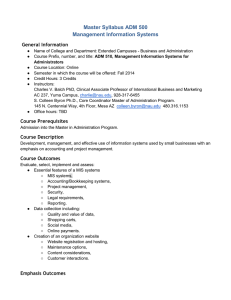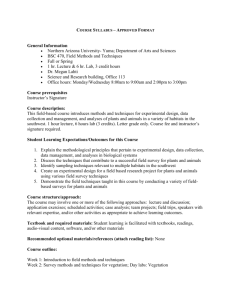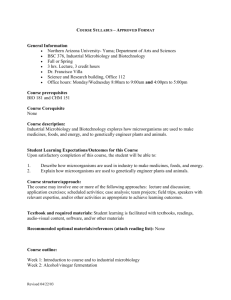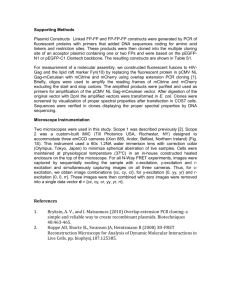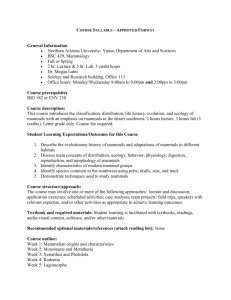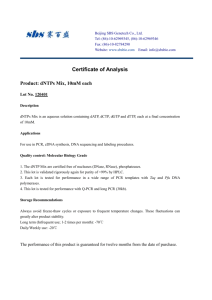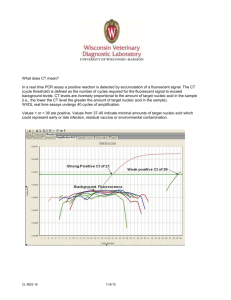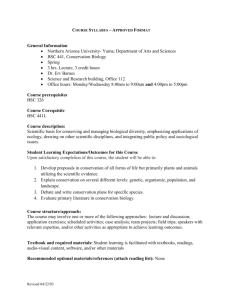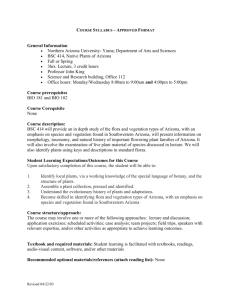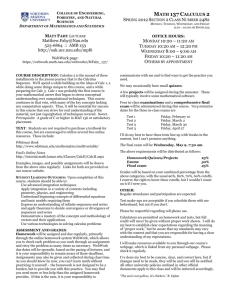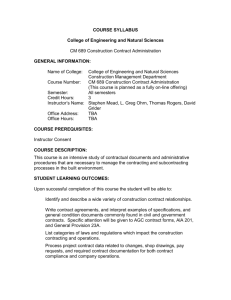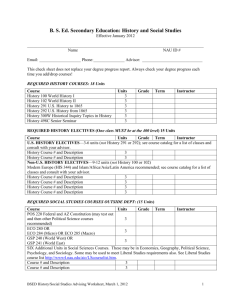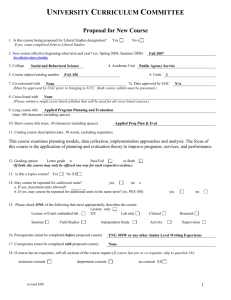BSC 349L Molecular Techniques Master Syllabus
advertisement
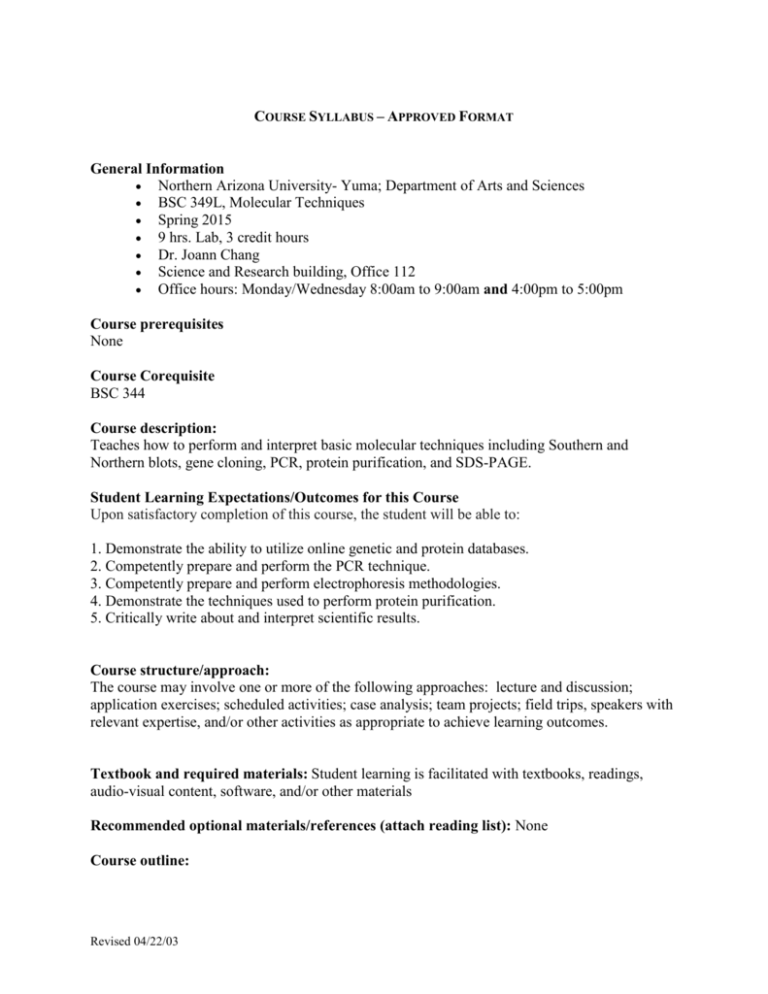
COURSE SYLLABUS – APPROVED FORMAT General Information Northern Arizona University- Yuma; Department of Arts and Sciences BSC 349L, Molecular Techniques Spring 2015 9 hrs. Lab, 3 credit hours Dr. Joann Chang Science and Research building, Office 112 Office hours: Monday/Wednesday 8:00am to 9:00am and 4:00pm to 5:00pm Course prerequisites None Course Corequisite BSC 344 Course description: Teaches how to perform and interpret basic molecular techniques including Southern and Northern blots, gene cloning, PCR, protein purification, and SDS-PAGE. Student Learning Expectations/Outcomes for this Course Upon satisfactory completion of this course, the student will be able to: 1. Demonstrate the ability to utilize online genetic and protein databases. 2. Competently prepare and perform the PCR technique. 3. Competently prepare and perform electrophoresis methodologies. 4. Demonstrate the techniques used to perform protein purification. 5. Critically write about and interpret scientific results. Course structure/approach: The course may involve one or more of the following approaches: lecture and discussion; application exercises; scheduled activities; case analysis; team projects; field trips, speakers with relevant expertise, and/or other activities as appropriate to achieve learning outcomes. Textbook and required materials: Student learning is facilitated with textbooks, readings, audio-visual content, software, and/or other materials Recommended optional materials/references (attach reading list): None Course outline: Revised 04/22/03 Week 1: Introduction and Safety Week 2: Protein Quantification Week 3: Green Fluorescent Protein Week 4: Green Fluorescent Protein Week 5: Green Fluorescent Protein Chromatography Week 6: RFLP PCR Week 7: STR PCR Week 8: Crime Scene Investigation Week 9: Crime Scene Investigation Week 10: Detecting Genetically Modified Foods Week 11: Detecting Genetically Modified Foods Week 12: Enzyme Linked Immunoassay Week 13: Microscopy Week 14: Osmosis/Lipid Membranes Week 15: Journal Club Week 16: Journal Club Assessment of Student Learning Outcomes Methods of Assessment: In-class exams, laboratory reports, in-class activities, research paper, and/or presentations. Timeline for Assessment: Over the course of the semester Grading System: Letter grades for the course will be determined based on the percentage of the total points as follows: 90-100% A Excellent 80-89% B Good 70-79% C Average 60-69% D Lowest passing <60% F Failure Course policy: Retests/makeup tests: No make-up exams or re-tests except for what the instructor may deem as extenuating circumstances. Attendance Policy: Under NAU Policy, students are expected to attend every session of the class in which they are enrolled. Statement on plagiarism and cheating: DON’T CHEAT! Revised 04/22/03 Please refer to the NAU Student Handbook policy statement on Academic Integrity. Academic honesty does not allow "plagiarism — knowingly representing the words or ideas of another as one's own" (2005, Undergraduate General Academic and Graduation Policies). If your instructor determines that you are guilty of plagiarism he deserves the right to give you a zero on the alleged assignment up to failing the course in question. All incidents regardless will be reported to the university. University policies Attach the Safe Working and Learning Environment, Students with Disabilities, Institutional Review Board, and Academic Integrity policies or reference them on the syllabus. See the following document for policy statements: http://www4.nau.edu/avpaa/UCCPolicy/plcystmt.html. Your instructor reserves the right to make any changes to the course policies, schedule, or any other aspect of the class as he sees fit. Revised 04/22/03
